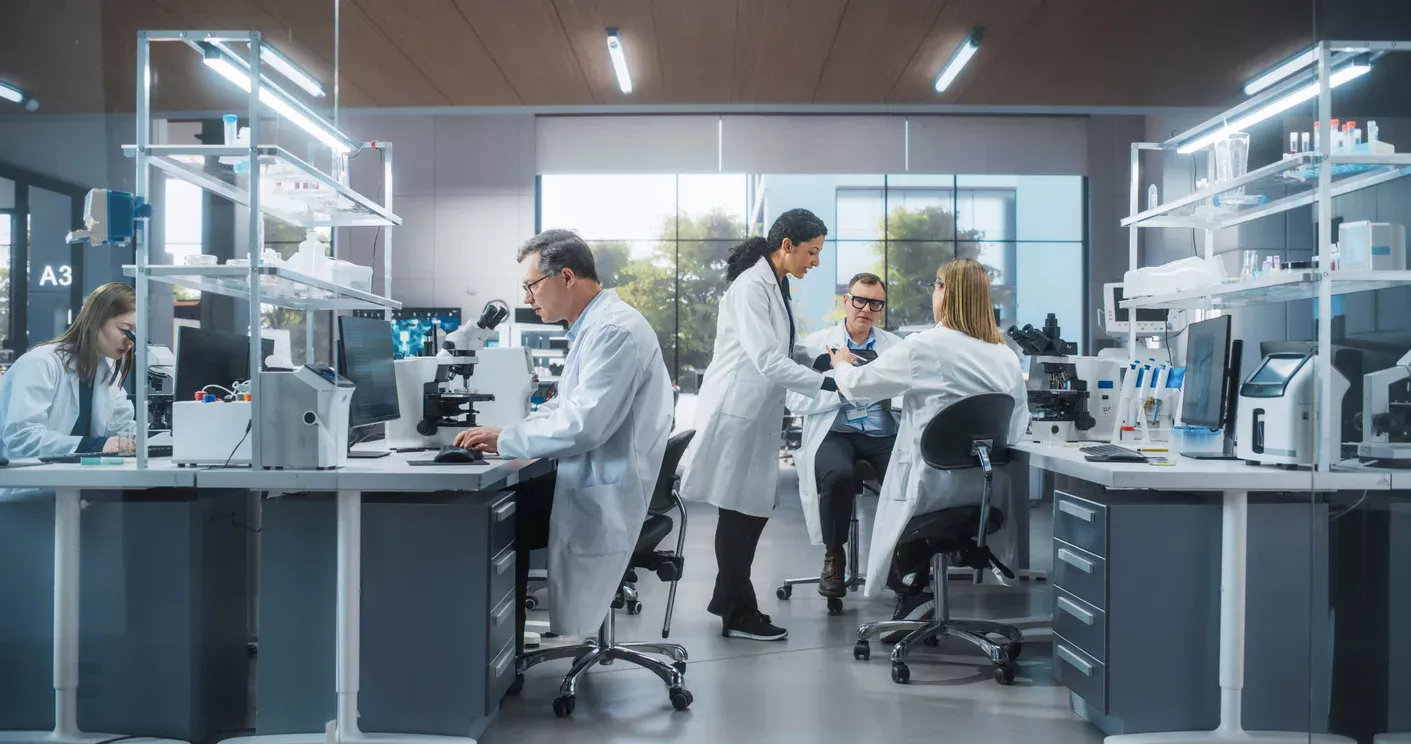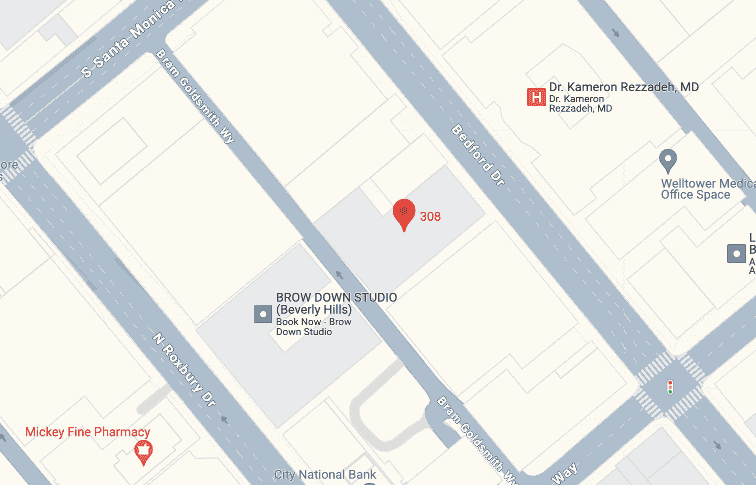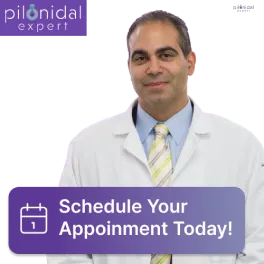The decision of whether to seek surgical treatment for a pilonidal cyst, or even for any other condition, is one that most patients struggle with. After all, such cysts can be excruciatingly painful and can recur multiple times, yet surgery is not the first most logical corrective measure. Knowing when to re-engage the thought of surgery will help you cut the risks that come with injurious self-decision.
In this blog, we will guide you through the key elements to consider, from understanding while surgery can be vital to how a colorectal surgeon pilonidal cyst can offer the right care.
When should one contemplate surgical measures?

At Pilonidal Expert, we receive questions such as, “Do I really need surgery for my pilonidal cyst? Do the factors causing the cyst certainly recur?” The answer depends upon many elements including the severity of your symptoms & recurrences of the cyst.
Here are some key signs that surgical treatment may be right for you:
1) Recurrent infection
If you have had more than one episode of contamination, which has led to complications such as an abscess, this is a powerful sign that surgery may be necessary. Repeated inflammatory episodes can also cause scar formation or other disease complications that can make it very difficult to treat the cyst afterwards.
2. Chronic pain and discomfort
If your pilonidal cyst is inflicting pain that makes you unable to carry on with your normal way of living, surgery may be necessary in order to relieve this pain for good. While a few patients can control signs and symptoms via home care, others have found that surgery eases the problem the most for a long time.
3. Failure of conservative treatment measures
If the course of treatment has included nonsurgical management such as drainage of cyst or antibiotics but still the symptoms persisted, then excision alone will be the course of treatment.
A consultation with a colorectal surgeon who works on pilonidal cysts will help you know whether surgical treatment is indicated in your case.
Types of pilonidal cyst surgery
There are many surgery types the patients will have to go through so that they can heal from pilonidal cysts, Some of these include less invasive procedures and some other more sophisticated surgical procedures. Which type of surgery will be advised will be influenced by how the cyst is and the patient’s medical history.
a) Incision and drainage
This one is a far more conservative measure when it comes to the treatment of acute infections. Antibiotics are given to patients and a minor cut is made in order for the cyst to drain its pus. In these procedures, while it will provide some measures of comfort, it will not in every instance be able to assure that the cyst will stay away for good.
b) Excision
In case of recurrent or troublesome pilonidal cysts, excision may prove to be of value. In this method the sac and the adjacent tissues are excised so as to minimise the chances of recurring cysts. Your pilonidal cyst colorectal surgeon will talk to you about unique excision techniques that include open and closed wound alternatives.
c) Flap surgery
In extra complicated or recurrent cases, valve surgery is likely to be recommended. In this method, a practising colorectal physician specialising in pilonidal cysts removes the cyst and reconstructs the affected area using a flap of nearby skin to cover the wound. This can improve recovery and reduce the chances of recurrence.
What to expect from pilonidal cyst surgery
If you and your colorectal specialist have weighed all the potential outcomes and found that you are ready for the surgical intervention, it is crucial to know what to expect throughout the procedure.
i) Pre-operative consultation
During this visit, your health care professional will go over your clinical history, explain the surgical intervention, and describe the covering and following care. They will make sure that you are an excellent candidate for the surgery and that you are aware of all the risks and advantages of the capabilities.
ii) Day of surgery
Pilonidal cyst surgery is performed, in most cases, on an outpatient basis, which in turn enables your discharge the same day. The operation is usually 30 minutes to an hour maximum, depending on the extent of the cyst.
iii) Post-operative care
Recovery time can vary, however most sufferers can return to their normal activities within 2-4 weeks. Your healthcare professional will give you specific wound care instructions, which consist of keeping the surrounding area smooth, dressings, and watching for signs and symptoms of infection. Follow-up visits are imperatively important to ensure all concerns are addressed and healing is progressing as desired.
Is there any risk associated with pilonidal removal surgery?
Similar to any other surgical procedure, there are indeed factors that may pose a threat and which require careful consideration. However, with an experienced pilonidal cyst practitioner in colorectal medicine, the risk is generally low. Common risks include infections, delayed healing of surgical wounds and recurrence of the pilonidal disease, but it is very rare. These issues will be raised and detailed to you by your doctor as well as issues of supportive counselling on the benefits of the surgery against risks.
Finding the right colorectal surgeon pilonidal cyst near me
One of the vital points in your journey to get relief from pilonidal cyst is choosing the right health care provider. An experienced doctor who loves performing pilonidal sinus surgery may greatly improve the results of your surgery.
When trying to find a pilonidal cyst colorectal surgeon near me, be sure to:
1) Look for experience
Choose a surgeon who has performed several pilonidal cyst surgeries. This ensures that they can be familiar with both preferred and advanced techniques, giving you a nice risk for a successful outcome.
2) Check credentials
Board certification and membership in relevant surgical societies are key features of a medical professional’s information.
3) Consultations matter
Your concerns and inquiries will be respectfully taken into consideration by the right healthcare practitioner and they will ensure that the treatment plan approved is suitable for you.
At Pilonidal Expert, we have a team of certified gastroenterology surgeons fully specialised in the treatment of pilonidal cysts. Together with you, we will meticulously develop individualised post operative care plans to ensure the highest level of attention to your health.
Take the next step toward lasting relief from pilonidal cysts
If you are in doubt whether you should undergo surgery or not? We can assist you in addressing this as well. Our dedicated group at Pilonidal Expert has the pleasure and understanding to guide you every step of the way. Whether you’re looking for an easy solution or want extra advanced care, our colorectal specialists are ready to offer you high-quality alternatives.
Are you ready for a permanent fix? Please contact us in order to book a meeting with a qualified physician and allow helping you to take the first step towards a healthy, pain-free living. Let us strategize ways to enable you to live comfortably without the recurrent attacks of pilonidal cysts.








